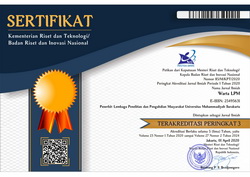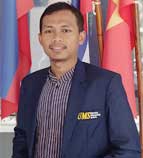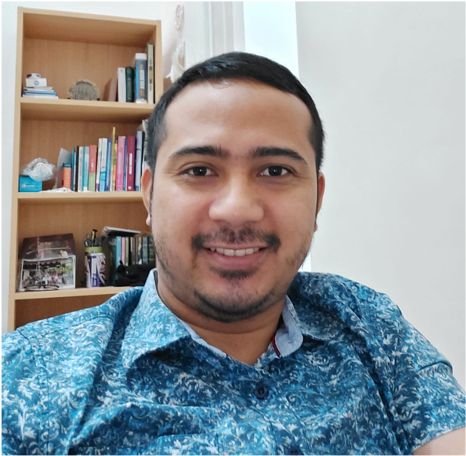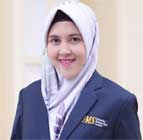Implementation of Incinerator Technology for Creative Economy-Based Waste Management in the MARDIKO Scavenger Community, Piyungan, Bantul, Yogyakarta
DOI:
https://doi.org/10.23917/warta.v28i2.7842Keywords:
community empowerment, incinerator, recycling, scavenger group, waste managementAbstract
Considering the results of the community service implementation team's observations and investigations, there are three main problems faced by the MARDIKO Scavenger Group in Sitimulyo Piyungan Village, Bantul, Yogyakarta as a PkM partner in pioneering a creative economy-based cooperative. First, lack of knowledge and skills about waste processing that generates additional income. Second, scavengers in their daily lives only look for used goods from waste carried by garbage trucks heading to the disposal area. Third, community awareness and involvement in waste management are still very low, whereas if waste can be recycled, it will produce products that can be additional income for the scavenger group. The PkM implementation method is through the science and technology diffusion method by making and applying an incinerator to process non-organic waste and hazardous substances by burning. The purpose of burning waste is to process waste so that it can reduce its volume and danger, in addition to capturing or destroying hazardous substances that may be released during combustion. In resolving problems in the social, production and marketing fields experienced by the MARDIKO scavenger group, the implementation of the PKM program is carried out through 5 program stages, namely socialization and community awareness, training, application of incinerator technology, utilizing ash from burning for bricks, intensive assistance and evaluation of program sustainability.
Downloads
References
Afiah, K. N. (2020). PENERAPAN NILAI DAN ETIKA DALAM INTERVENSI: Dilema Etis Pekerja Sosial Dalam Program Pemberdayaan Kelompok Pemulung Mardiko Piyungan Bantul. Jurnal Ilmu Kesejahteraan Sosial, 9(2), 187–209.
Atika Juhaedah Alifah, Febriansyah, Leni June Murliani, & Tosha Tojaya. (2023). Pengelolaan Sampah Plastik Menjadi Ekobrik Untuk Mencegah Pencemaran Sampah Mikroplastik Yang Ada Di Desa Mekarasih. Jurnal Abdi Nusa, 3(3), 164–170. https://doi.org/10.52005/abdinusa.v3i3.195
Bernadi, J. (2013). Aplikasi Sistem Informasi Penjualan Berbasis Web pada Toko Velg YQ. ComTech: Computer, Mathematics and Engineering Applications, 4(2), 731. https://doi.org/10.21512/comtech.v4i2.2504
Farid, M. R. A. (2019). Peran Pemuda Majelis Pemberdayaan Masyarakat dalam Pendampingan Komunitas Pemulung di Tempat Pembuangan Sampah Terpadu. Islamic Management and Empowerment Journal, 1(2), 161–176. https://doi.org/10.18326/imej.v1i2.161-176
Huzaemah, S. (2020). Sampah Adalah Berkah; Studi Pola Kehidupan Sosial Ekonomi Pemulung Di Sekitaran Tempat Pembuangan Ahir (TPA) Piyungan. Islamic Management and Empowerment Journal, 2(1), 81–92. https://doi.org/10.18326/imej.v2i1.81-92
Istanabi, T., Miladan, N., Suminar, L., Kusumastuti, K., Aliyah, I., Soedwiwahjono, S., Utomo, R. P., Werdiningtyas, R. R., & Yudana, G. (2022). Pengelolaan Bank Sampah sebagai implementasi Ekonomi Kreatif di Bank Sampah Guyub Rukun Dusun Madugondo, Kecamatan Piyungan, Bantul. PengabdianMu: Jurnal Ilmiah Pengabdian Kepada Masyarakat, 7(3), 407–413. https://doi.org/10.33084/pengabdianmu.v7i3.2765
Kasam, I. (2011). Analisis Resiko Lingkungan pada Tempat Pembuangan Akhir (TPA) Sampah (Studi Kasus: TPA Piyungan Bantul). Jurnal Sains &Teknologi Lingkungan, 3(1), 19–30. https://doi.org/10.20885/jstl.vol3.iss1.art2
Kautsarina. (2013). PEMASARAN ELEKTRONIK MELALUI APLIKASI JEJARING SOSIAL (Survei Pelaku UKM di Provinsi Jambi dan Bengkulu). Jurnal Studi Komunikasi Dan Media, 17(2), 135–148. https://jurnal.kominfo.go.id/index.php/jskm/article/view/170202/109
Li, Y., & Yang, R. (2014). New Business Model for Company toWin the Competition. American Journal of Industrial and Business Management, 04(04), 190–198. https://doi.org/10.4236/ajibm.2014.44026
Mulasari, S. A., Husodo, A. H., & Muhadjir, N. (2016). Analisis Situasi Permasalahan Sampah Kota Yogyakarta Dan Kebijakan Penanggulangannya. Jurnal Kesehatan Masyarakat, 11(2), 259. https://doi.org/10.15294/kemas.v11i2.3989
Muyassar, M., & Budianta, W. (2021). Pencemaran Logam Berat Pada Tanah Di Sekitar Tempat Pembuangan Akhir (Tpa) Sampah Piyungan, Bantul, Yogyakarta. Kurvatek, 6(1), 11–22. https://doi.org/10.33579/krvtk.v6i1.2146
Nurmalasari, D., Milda, M., Andrian, N., Priyanto, A. K., & Taryana, A. (2024). Pemanfaatan Sampah Plastik Menjadi Produk dan Jasa Kreatif. Journal of Comprehensive Science (JCS), 3(7), 2183–2192. https://doi.org/10.59188/jcs.v3i7.751
Rahayu, Y. S., Ridwan Mahanka, I. A., & Sulastriningsi, R. D. (2018). Pemberdayaan Ekonomi Keluarga Melalui Kelompok PKK Rw 10. Jurnal Abdimas BSI …, 1(1), 149–154. https://ejournal.bsi.ac.id/ejurnal/index.php/abdimas/article/view/3182
Setiawan, R., Dharma, U. S., Andriyansyah, N., Irawan, D., & Yanto, R. (2020). Pembuatan minyak plastik dengan metode destilasi bertingkat. ARMATUR : Artikel Teknik Mesin & Manufaktur, 1(1), 35–40. https://doi.org/10.24127/armatur.v1i1.188
Shabrina, V. G. (2019). Pengaruh Revolusi Digital terhadap Pemasaran dan Perilaku Konsumen. Jurnal Pewarta Indonesia, 1(2), 131–141. https://doi.org/10.25008/jpi.v1i2.16
Shalfiah, R. (2013). Peran Pemberdayaan Dan Kesejahteraan Keluarga (Pkk) Dalam Mendukung Program-Program Pemerintah Kota Bontang. EJournal Ilmu Pemerintahan, 1(3), 975–984. http://perpustakaan.unmul.ac.id/ejournal/index.php/um/article/view/92
Sulistyani, A. T., & Wulandari, Y. (2017). Proses Pemberdayaan Masyarakat Desa Sitimulyo Kecamatan Piyungan Kabupaten Bantul Dalam Pembentukan Kelompok Pengelola Sampah Mandiri (KPSM). Jurnal Pengabdian Kepada Masyarakat (Indonesian Journal of Community Engagement), 2(2), 146. https://doi.org/10.22146/jpkm.27024
Titik Hardiyanti, D. (2022). Pengolahan limbah menjadi pupuk organik dan ekobrik di lingkungan Universitas Muhammadiyah Mataram. Jurnal Agro Dedikasi Masyarakat, 3(2), 2.
Widyaningsih, T., & Ma’ruf, A. (2017). Eksternalitas Tempat Pengolahan Sampah Terpadu (Tpst) Piyungan Kabupaten Bantul Daerah Istimewa Yogyakarta. Jurnal Ekonomi & Studi Pembangunan, 18(1). https://doi.org/10.18196/jesp.18.1.4013
Zahra, F., Padmi Damanhuri, T., & Studi Teknik Lingkungan, P. (2011). Ulang Kajian Komposisi, Karakteristik, Dan Potensi Daur Ulang Sampah Di Tpa Cipayung, Depok Study of Composition, Characteristic, and Recycling Potential of Waste At Cipayung Final Disposal Site,Depok. Jurnal Teknik Lingkungan, 17(April), 59.
Zuchriyastomo, Muhammad Alfin; Purnomo, E. P. (2020). Jurnal Kesehatan Masyarakat dan Lingkungan Hidup. Jurnal Kesehatan Masyarakat Dan Lingkungan Hidup, 5(1), 22–28. http://e-journal.sari-mutiara.ac.id/index.php/Kesehatan_Masyarakat/article/view/641/575
Downloads
Submitted
Accepted
Published
How to Cite
Issue
Section
License
Copyright (c) 2025 Warta LPM

This work is licensed under a Creative Commons Attribution 4.0 International License.














